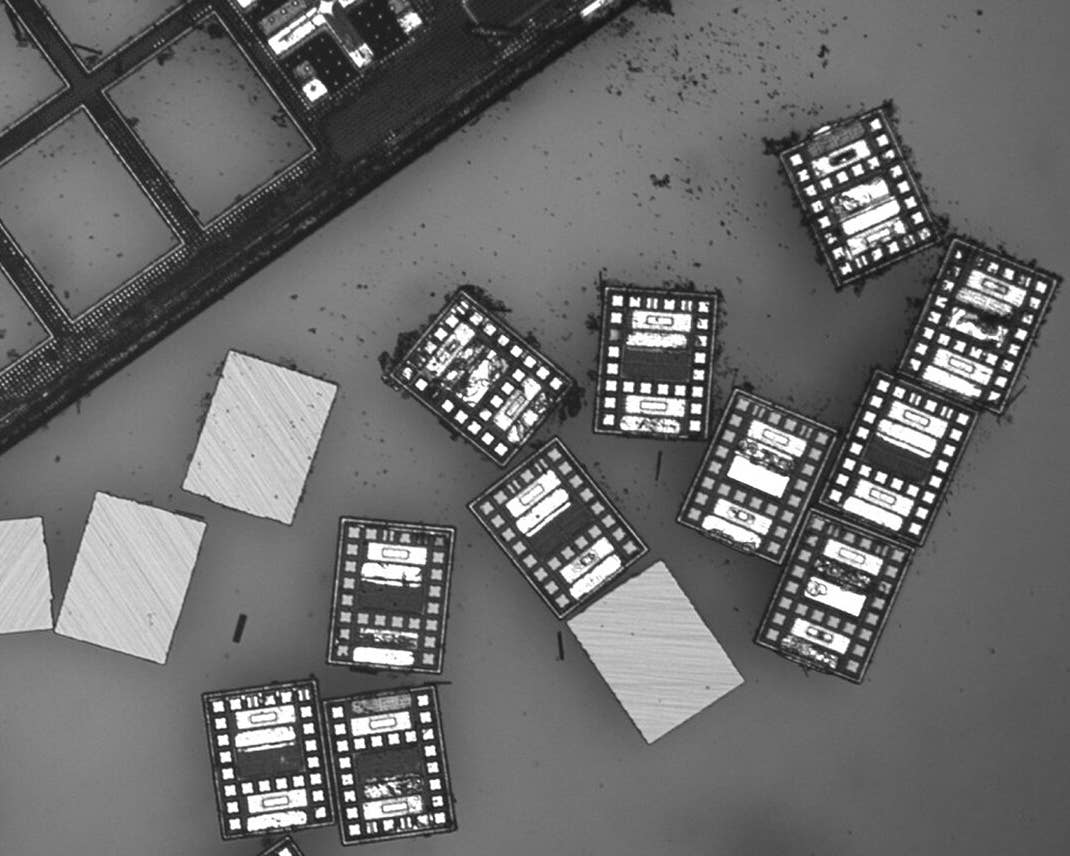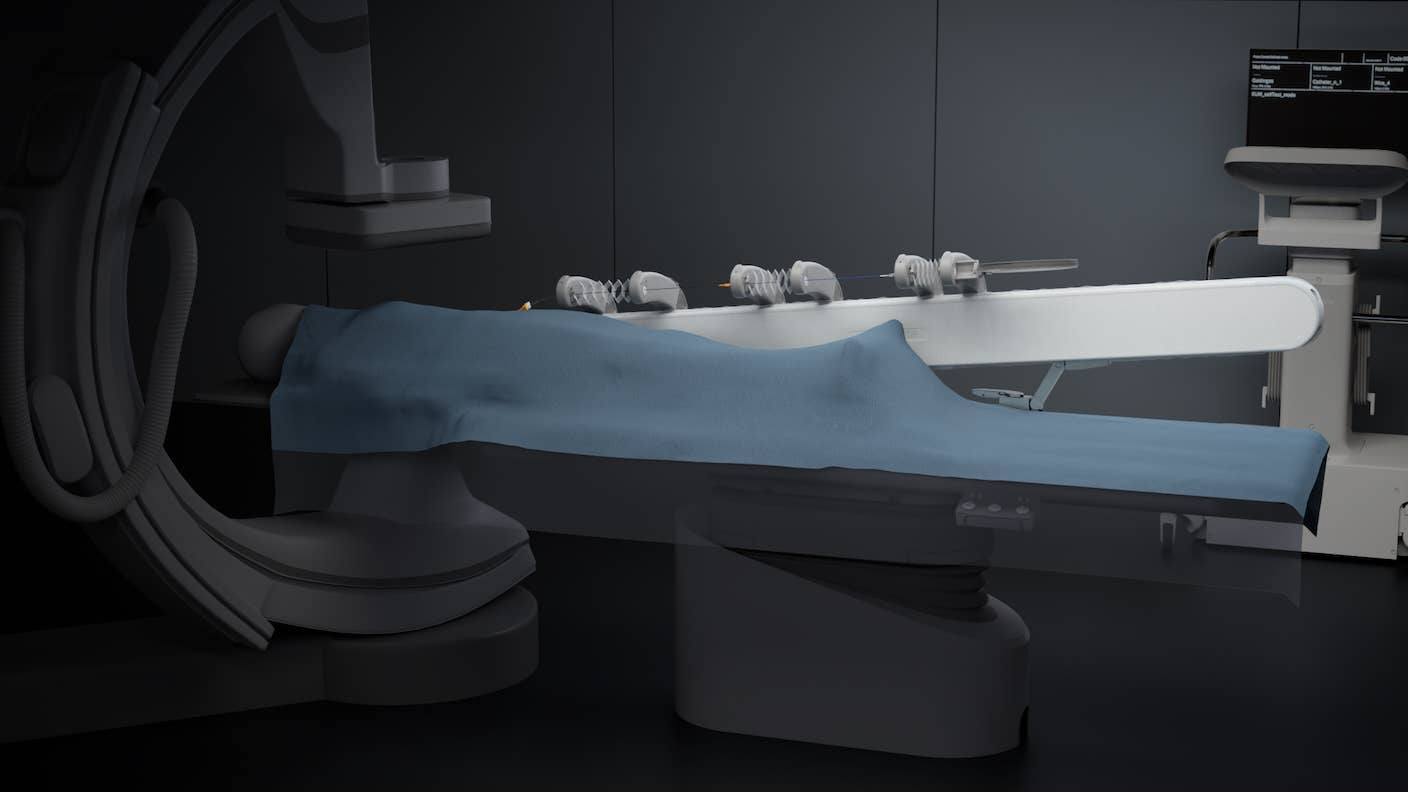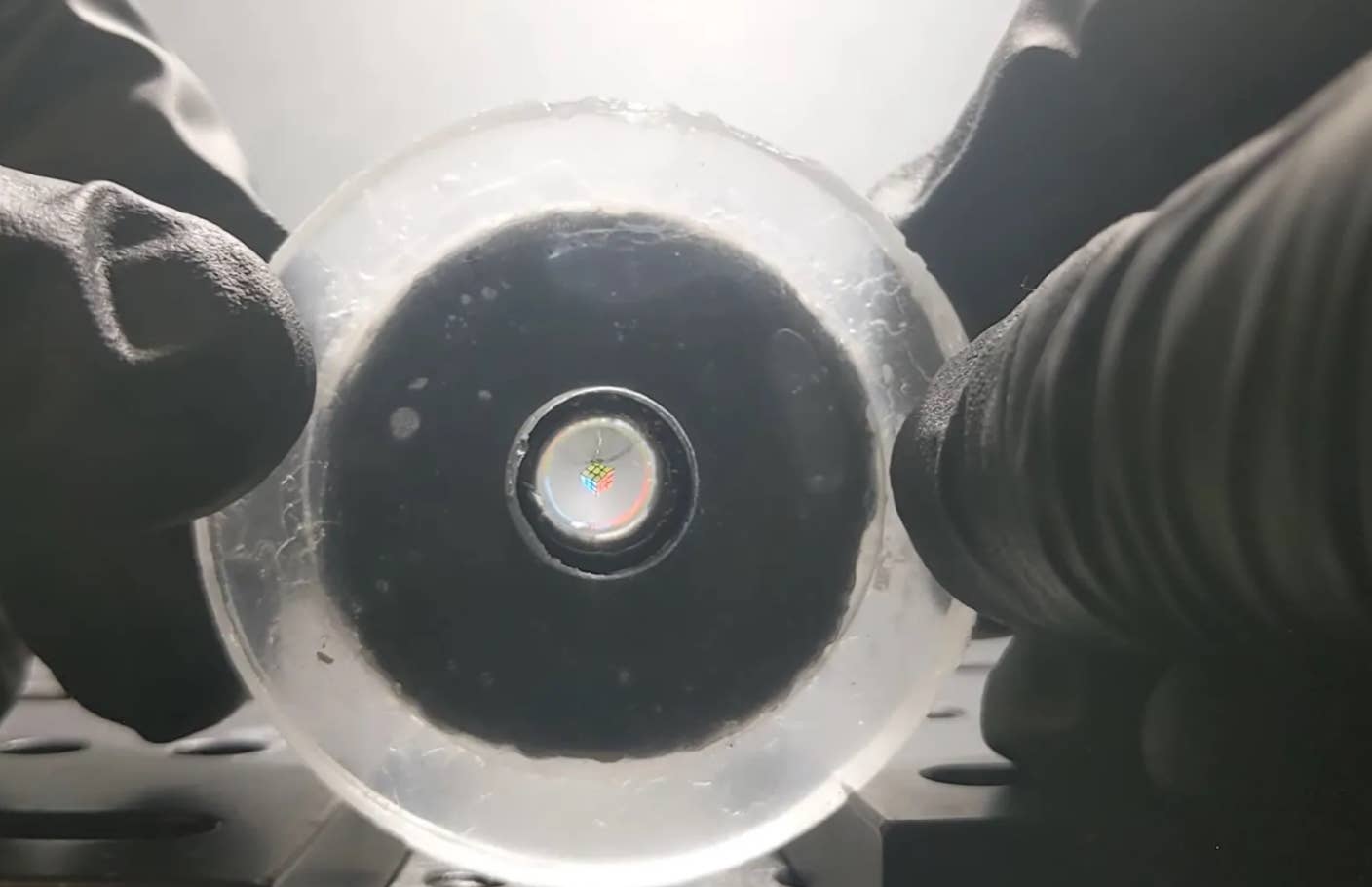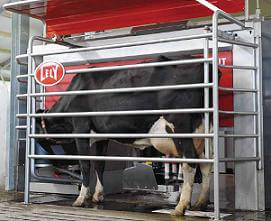Dairy Farms Go Robotic, Cows Have Never Been Happier (video)

Share
Be careful, humans: cows and robots have learned how to work together - who knows what this union could produce if we let it flourish unchecked. Lely, an international agriculture corporation recently unveiled their latest robotic milk harvesting system, the Astronaut A4, in Rotterdam. With this newest platform, Lely is pushing an...interesting...angle on the concept of agricultural automation: robots are the "natural way of milking" cows. That isn't a joke, they're being sincere. According to their brochures: "Successful robotic milking is not a matter of simply automating the parlour. It is a new style of farm management whereby the decisions shift from the farmer to the cow." That's right, robots are more natural than humans because robots let cows decide for themselves when they should be milked. Whether or not your a strong proponent for bovine freedom, you have to check out the videos for the new Astronaut A4 below. It's amazing how advanced milking machines have become. I'm not sure the cows are happier, but they do seem more empowered...
Milking machines have been around for a long time. Lely itself has been providing automated milking systems to dairy farmers for almost 20 years. What sets the more recent of the Astronaut series of robots apart is how completely they automate milk collection. There is little to no human involvement in the actual milking process. Cows walk into the milking station on their own, and are tracked by 3D cameras and motion detectors. The robot locates the udder with a 'teat detection system' aka the TDS (I wish I was making that up), milks the cow, and then the cow leaves. Humans interact with the machines, not the animals. That's frakkin' nuts, but it really seems to work. Here's the promotional video for the A4 that demonstrates the milking process fully:
The Astronaut automated milking system has some distinct benefits to the farmer: it reduces labor costs, it integrates testing of the milk at the milking station, and it pushes important data (teat health, production levels, etc) to the farmer's smart phone so that it can be easily reviewed. Those benefits have attracted many dairy cow owners to the Astronaut series. Over the years Lely has sold more than 10,000 units around the globe, and the latest are capable of collecting more than 2500 liters per day. That's tens of millions of liters of milk every day that come through Lely systems. Unsurprisingly, they had an easy time finding farmers to endorse their products, as you can see in the video below. This clip, while interesting, is pure promotion for Lely, so feel free to skip around once you get an idea for what's being said:
So, sure, automation has arrived at dairy farms the same way it has arrived at car manufacturing plants, data call centers, and every other industry in the world. What's the big deal? The cows. The cows are the big deal, at least according to Lely. Their press materials repeatedly refer to the importance of cows in the design of the Astronaut A4. "The cow is key." Every aspect of the system has been, reportedly, focused on making cows as happy and healthy as possible. The milking stalls are opt-in only, cows aren't corralled into them. In fact, as you can see in footage of the A3, cows jockey in line to get to the milking station first (probably because they are offered food as a reward). Lely's design for the barn allows the cattle to freely enter or leave at anytime, to graze outside or eat inside as they prefer, and to be milked, cleaned, etc, in the presence of the rest of the herd. Again, I'm not sure if the cow actually cares about all this freedom of choice, but Lely is certainly acting as if it does. In the A4 press release CEO Alexander van der Lely states, "Contrary to what seems to be the current market trend, we strongly believe this [freedom] is the way forward in automating dairy farms in an animal friendly way."
Be Part of the Future
Sign up to receive top stories about groundbreaking technologies and visionary thinkers from SingularityHub.


I should mention that this animal-friendly attitude goes beyond the milking stations. Lely has a host of systems for the automated farm of the future. Cow stalls are cleaned with robots that do not startle or prod the cows. Feeding systems push in roughage in regular intervals. The automated lighting system is supposedly programmed to be 'therapeutic'. There are even automated brushes (the Lely Luna) that clean the cows on their own terms:
When dairy farms decide to outsource the decision making process for milking times to cows, I'm not sure the cows really care. But farmers should. What Lely is doing is putting machines between humans and livestock. Imagine a farm where humans only have to visit once a week to check in on how things are going. That farm already exists in Brittany in France. Lely recently invited thousands to come see a model dairy farm that had robots handling all levels of production and where humans were only present on Sundays so as to comply with French law. The dairy farm (which makes cheese) has 180 cows, but only three farmers.
Clearly Lely is selling the machine buffer between humans and cattle as good for both biological parties. Humans don't have to work as hard, and cows get to move around more freely. I don't think any system that uses advanced robotics should be called "the natural way of milking" but I do think Lely is on to something. Whether or not cows prefer the robotic systems, the Astronaut A4 certainly seems more animal friendly. Which means that it can be sold not merely as a more efficient but also as a morally superior means of farming. I'm not sure robotics has been able to claim that ground in any other field. While I find some of Lely's advertising preposterous, I am also rather drawn to it. In a world where industrial agriculture routinely isolates, mutilates, and chemically modifies livestock, the concept of a robotically fueled farm-topia full of happy cows is definitely appealing. The efficiency is really the most important part of robotic agriculture, but the animal friendly attitude is an awesome fringe benefit.
Now, if you'll excuse me, I need to go write down the billion 'teat detection system' jokes I wasn't able to include here.
[image credt: Lely]
[video credits: Lely via Bertosierra and PortalHodocwcyPL]
[sources: Lely]
Related Articles

These Robots Are the Size of Single Cells and Cost Just a Penny Apiece

In Wild Experiment, Surgeon Uses Robot to Remove Blood Clot in Brain 4,000 Miles Away

A Squishy New Robotic ‘Eye’ Automatically Focuses Like Our Own
What we’re reading
